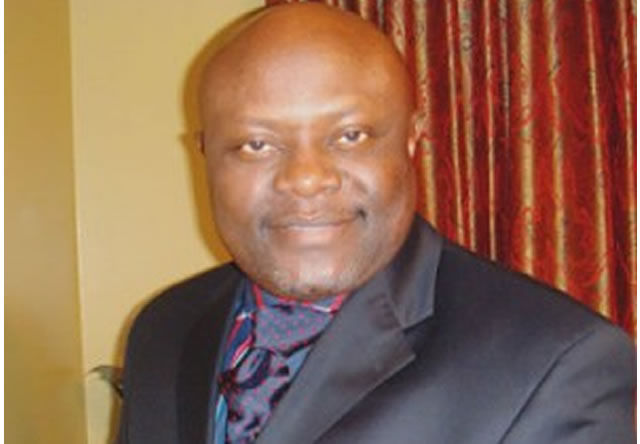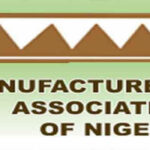
If you fall into the category of those who believe that victory in next year’s presidential election in Nigeria will be determined strictly by candidates’ competence, savvy intellectual endowment, and sparkling clean bill of health, you must be a cuddler of self-deception and delusion. Believe it or not, ethnic consideration will be a huge factor, and religious leaning will be a dashing reason many people will be voting for the candidate of their choice. These are already permeating the discourse stable as we prepare for 2023.
“It is our turn”; some insist.
“No! For the sake of fairness, it is ours”; others take a stand.
Ethnic colouration and religious effluvium will drive many voters to the polls next year. These are already tattooed in their hearts and minds. We’ve also heard it in sermonettes in churches as pastors take bold stands that a Christian must be crowned the next president. We have also heard it in the alwaez of Imams that a Moslem candidate must succeed the President, Major General Muhammadu Buhari(retd.). Many Christian and Islamic clerics now preach that candidates who believe the God they worship must become president. Where, you may now ask, is the consideration for candidates’ character, competence, and ability to govern without fear or favour? These factors may have already been consigned into the trash bin of discourse. This submission saddens me personally. It is, however, the state of the Nigerian state. It is today’s sincere state of our union.
I’ve watched prognosticators on television, and read volleys of analyses in newspapers about the next presidential election. As you read this, you must understand this one thing before you put all your bets on what you believe is your candidate’s inevitable victory. Elections are largely won and lost before t election day. Even in developed nations of the world are powerful voices that determine how elections swing and in whose favour. Nigeria will not be exempted from that nauseating narrative. These are facts of politics and democracy. The mindset of Nigerian powerbrokers is peculiarly stubborn. There are handwringing and behind-the-scenes ongoing talks about who to crown the winner. Are you surprised? I am not. Are these powerbrokers installing the next president? They will take a swing at it. They have since Nigeria’s independence. Will it be different now? Let’s wait and see.
Money will also be a piercing factor. Bola Tinubu, Atiku Abubakar, and Peter Obi are the three billionaire leading candidates. They all have stacks of cash to splurge. Why is money the monstrous driver here? Enslaving poverty height in Nigeria is the reason. A bastion of Nigerian households lacks the ways and means of supporting themselves. Millions of the citizens are destitute. Many millions more are hungry for food and shelter. Access to medical care is non-existent. As a result, many will die unnecessarily before their time. Nigerians live in financial and non-financial poverty. Cash is a rare find. With a Gross Domestic Product of $440bn, Nigeria is the largest economy in Africa, but the country is caught in a deep poverty cycle.
According to the World Bank, 95 million Nigerians will be considered extremely poor by 2022, up from the current national average of 89 million, or 43 per cent of the population. This calculation is based on the extreme poverty mark of less than $2.15 a day. More than 90 per cent of Nigerians live in poverty when compared to the $5.5 daily poverty limit. The non-financial aspects of poverty include situations such as material squalor, impotence, social exclusion and powerlessness, a lack of opportunities, a lack of education, and sub-par living conditions.
Politicians who seek power take advantage of the people’s dire conditions; and they make quid-pro-quo offers to voters- “I’ll give you money; but you must give me your votes.”‘Stomach infrastructure’ is a red-hot axiom in the Nigerian political terrain. It is a patronising cumshaw gesture from politicians to willing voters ready to auction their souls for peanuts. The ephemeral impact of ‘stomach infrastructure’ is more important to these people than promises of social, road, and rail infrastructures that improve lives and destinies of citizens. Hungry people respond to ‘stomach infrastructure,’ not to big grammar jabberwocky about global economic statistics that put no morsel of bread in their stomachs. Unfortunately, impoverished Nigerians are more in number. And they are the ones who are likely to show up to vote.
Are you warming up to show off and show up in Aso Rock next year with your man in power? Well, learn this now. Your candidate may not be the biggest money splurge-machine, but he must not be a non-spender. He must not be tightfisted and thrifty. Poor and hungry Nigerian voters don’t do no sleeping and waking up on the bed of intentional pauperism. If a candidate is a fist-clencher, he will lose disgracefully in a Nigerian election where men and women who are ravaged by hunger also desire a piece of the national cake that politicians have free access to. This is the reality in Nigeria.
What else will make a candidate victorious? The North-West geopolitical zone, made up of Kano, Kaduna, Katsina, Jigawa, Kebbi, Sokoto and Zamfara states, has 22.67 million registered voters. The South-West, which is made up of Lagos, Ogun, Oyo, Ondo, Osun, and Ekiti states, has the second highest number of voters of 18.3 million. The South-South region, comprising Bayelsa, Rivers, Akwa Ibom, Cross River and Edo states has 15.2 million registered voters.
The North-Central, comprising Kwara, Kogi, Plateau, Benue, Niger, and Nasarawa states, has 14.1 million voters.
The North-East, made up of Borno, Adamawa, Yobe, Bauchi, Taraba and Gombe states, has 12.8 million registered voters.
The South-East, made up of Imo, Anambra, Ebonyi, Abia, and Enugu states, has the least number of registered voters with 11.49 million persons from the region captured in the Independent National Electoral Commission’s register of voters.
A candidate who wants to win must have his charm shine through most of the regions, not just through the region he is considered “our son, our own.” He must have his convincing and coaxing charm shine through the spots there are concentration of heavy votes. The people must like him. They must trust him. They must believe that his words are truth and not lies. They must be able to trace his tracks of friendship back many years before an election season. They must also be able to recall what he has done and how he has responded to them in their hours of need.
A serious candidate must have been asking for the people’s votes indirectly way ahead of the time he is running. They must not only know him by name, but also by his good deeds.What about competence, character, and cerebral endowments? Without a doubt, these have their places in governance. But they are not the sole reasons many people vote for candidates. If competence and cerebral acuity are factors that make men president, Vice President Yemi Osinbajo should be running without oppositions today. The Director-General of The World Trade Organization, Ngozi Okonjo-Iweala, should be in the mix of personalities penned down as president. The African Development Bank President, Akinwunmi Adesina, should be in the waves. My friend Kingsley Moghalu should be warming up to get sworn in as President of the giant of Africa. Professors of note, professionals of exemplary status, and businessmen and women of global acclaim should be running Nigeria. But what do we have in today’s Nigeria? Nigerian intellectuals and businessmen and women who have made their marks are boxed to the sidelines watching and spewing out analyses on television. They will be ruled by men who many think are not necessarily up to par. It’s today’s story of the giant of Africa.
–Twitter: @Folaojotweet





